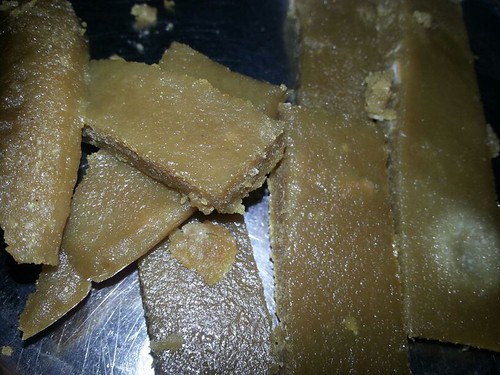Glossary K
The food glossary +++ Popular Articles: 'Kamias', 'Kinchay', 'Kamoteng Kahoy'
Kalamansi which is also spelled --->'Calamansi' is one of the exotic vegetables from the Philippines.
Kalan is a traditional South Indian dish with deep roots in the culinary heritage of Kerala, a state located in the southwestern part of India. Known for its unique Blend of flavors and distinctive preparation method, Kalan is a popular part of the elaborate feast called "Sadya" served during special occasions and festivals. In this article, we will explore the significance of Kalan, its culinary applications, any potential risks associated with its consumption, historical insights, and legal considerations, if applicable. We'll also touch upon similar dishes from different culinary traditions.
Kalathappam refers to Kerala's rice pan cake with Jaggery. It is a delicacy made from the Ari Podi (rice flour), Jaggery, fried onions or shallots and Coconut flakes which are either baked or steamed
Kalathappam is also prepared in other parts of Kerala, but it is more popular in Kannur.
My family friend in Allepey, Kerala cooked this for me so I can also see other kinds of Appam or rice cakes in their State. It was steamed

